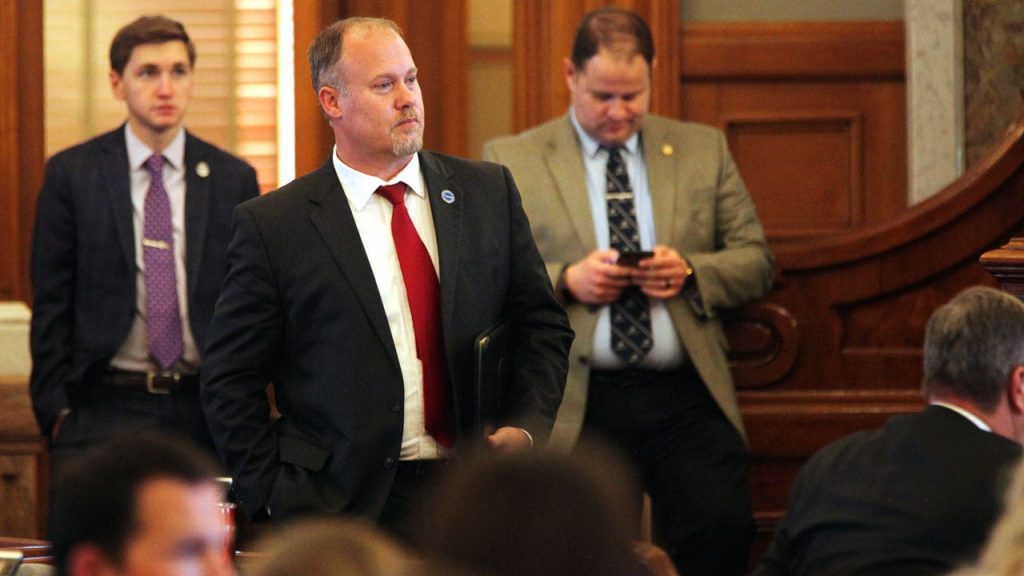A bipartisan group of rank-and-file lawmakers in Kansas recently rejected a plan for cutting taxes that had been proposed by Governor Laura Kelly and top Republicans in the Legislature. The plan would have cut taxes by about $1.4 billion over the next three years, but lawmakers from both parties felt that it was too small and favored wealthy taxpayers. The House decided to have House and Senate negotiators draft a different plan, with critics arguing that the property tax cuts were too modest. The rejection of the plan came after the Senate approved it 38-1, with many House Democrats planning to vote against it from the beginning.
Senate President Ty Masterson stated that the Legislature would not consider another tax plan that week, as lawmakers were set to adjourn for a spring break before returning to session in April. The events in Kansas took place shortly after Georgia’s Republican-controlled Legislature passed tax cuts favored by GOP Gov. Brian Kemp. Kansas has a large budget surplus, projected at more than $4 billion, similar to Georgia. In recent years, a dozen other states have cut their income tax rates according to the Tax Foundation, but Kansas has faced challenges in passing significant tax cuts amidst disagreements between Republicans and Governor Kelly.
Governor Kelly vetoed a plan for a single-rate income tax earlier in the year, leading to Republicans being unable to override her action. With all State Senate and House seats up for election in the year, Republican leaders were under pressure to enact tax cuts before the end of the legislative term. House Speaker Dan Hawkins expressed concern that rejecting the proposed plan would result in negative headlines, but some Republicans were willing to take that risk. The frustration with the plan and Kelly’s involvement was evident during a meeting with House Democrats, where the Governor tried to sell the plan as a victory for the party.
The proposed tax plan included adjustments to the state’s personal top income tax rate, the elimination of state income taxes on retirees’ Social Security benefits, an increase in the state’s standard personal income tax deductions, and other measures to reduce property taxes and end a sales tax on groceries. Critics of the plan, such as state Sen. Tom Holland, argued that it was insufficient to address the state’s fiscal challenges. The rejection of the plan by lawmakers reflects a broader debate over tax policy in Kansas and the balancing of priorities to ensure that tax cuts benefit a wide range of taxpayers.
Moving forward, the fate of tax reform in Kansas remains uncertain, as lawmakers are expected to reconsider new tax proposals when they return to session in April. The rejection of the proposed tax plan indicates the challenges of achieving consensus on fiscal policy in a politically diverse state. Despite facing pressure from various interest groups and political factions, lawmakers will need to find a balanced approach to tax reform that addresses the needs of all Kansans and ensures long-term economic stability and growth. As the debate over tax policy continues, it remains to be seen how lawmakers will navigate these complex issues in the coming months.


